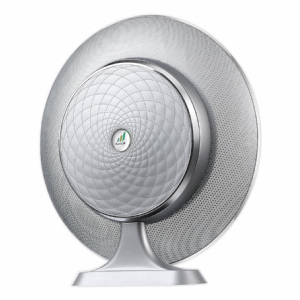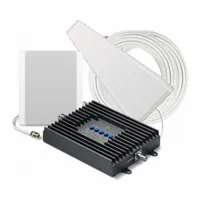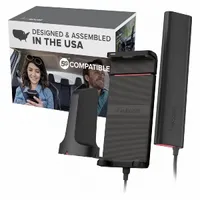Best cell phone signal boosters 2025
The best cell phone signal boosters can rescue you if you're suffering from poor reception
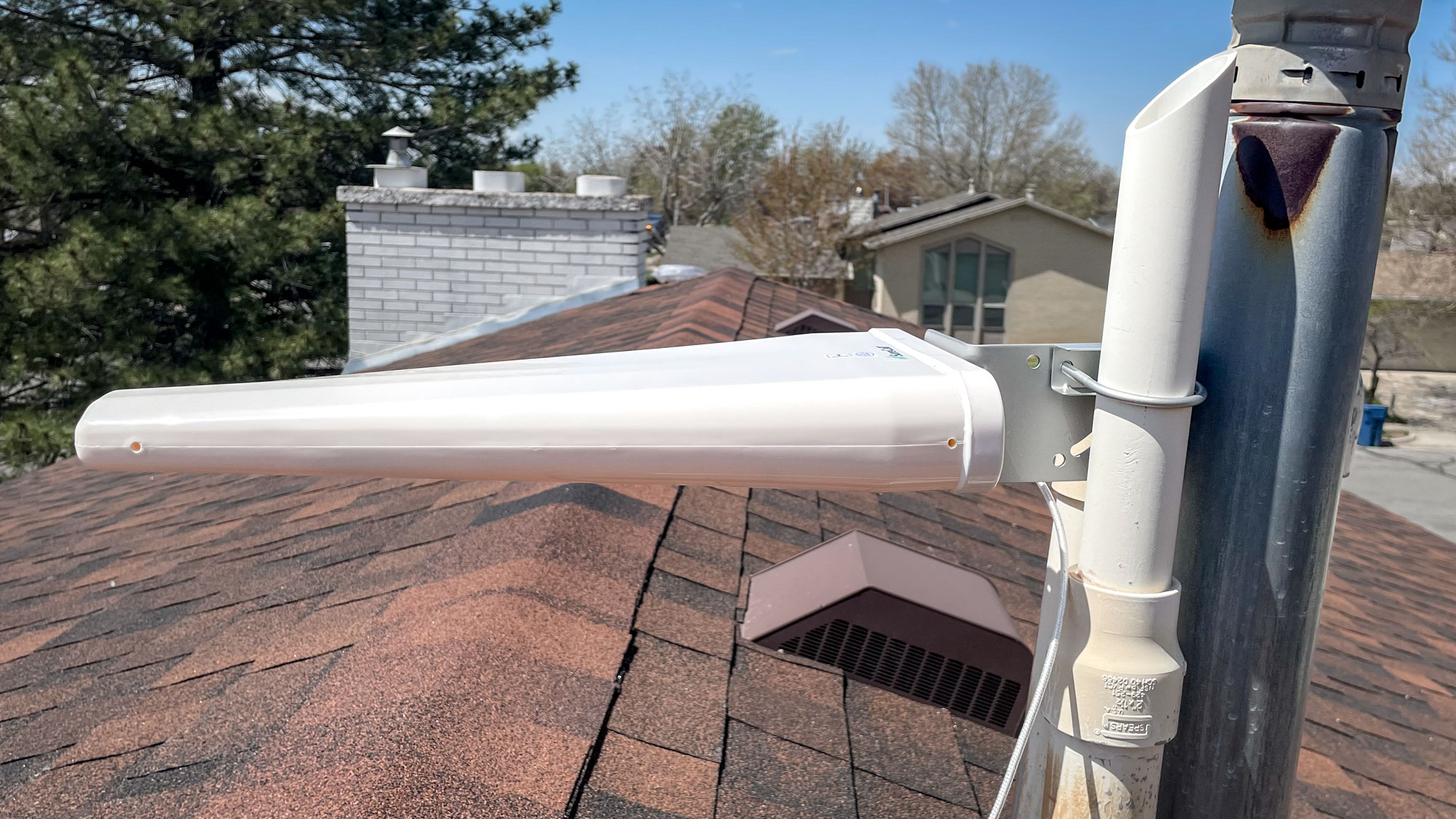
Here at Tom’s Guide our expert editors are committed to bringing you the best news, reviews and guides to help you stay informed and ahead of the curve!
You are now subscribed
Your newsletter sign-up was successful
Want to add more newsletters?

Daily (Mon-Sun)
Tom's Guide Daily
Sign up to get the latest updates on all of your favorite content! From cutting-edge tech news and the hottest streaming buzz to unbeatable deals on the best products and in-depth reviews, we’ve got you covered.

Weekly on Thursday
Tom's AI Guide
Be AI savvy with your weekly newsletter summing up all the biggest AI news you need to know. Plus, analysis from our AI editor and tips on how to use the latest AI tools!

Weekly on Friday
Tom's iGuide
Unlock the vast world of Apple news straight to your inbox. With coverage on everything from exciting product launches to essential software updates, this is your go-to source for the latest updates on all the best Apple content.

Weekly on Monday
Tom's Streaming Guide
Our weekly newsletter is expertly crafted to immerse you in the world of streaming. Stay updated on the latest releases and our top recommendations across your favorite streaming platforms.
Join the club
Get full access to premium articles, exclusive features and a growing list of member rewards.
Whether you live in densely populated states like Delaware or New Jersey, or somewhere more rural with wider open spaces like Wyoming or North Dakota, cell phone connectivity is still a concern. That’s because dead spots still do exist, which is why you need to invest in one of the best cell phone boosters.
Despite all of the technological advancements with today’s best phones, dead spots continue to exist. I know the frustration that comes when you’re fighting for connectivity when you’re on a phone call or downloading an important file. And while dead spots exist when you’re on the road jumping from tower to tower, you can still experience poor cell phone service at home.
Of course, there are several factors that can contribute to weak cell phone receptions, like what kind of modem your phone is using, your proximity to the closest cell phone tower, weather conditions, and much more. For me and others that experience poor cell phone connectivity, the end result is seeing very few bars on my phone, dropped calls, and yes, slower data speeds.
One solution that many carriers offer for free is Wi-Fi calling, but not all phones support it. That’s why cell phone boosters exist to help enhance your coverage, whether you’re at home or on the road. I’ve tested out several in the 10+ years I’ve been reviewing phones for a living, and I can tell you that they can make a difference. While cell phone boosters can make a difference based on my experience, their setup can be quite involved.
The Quick List
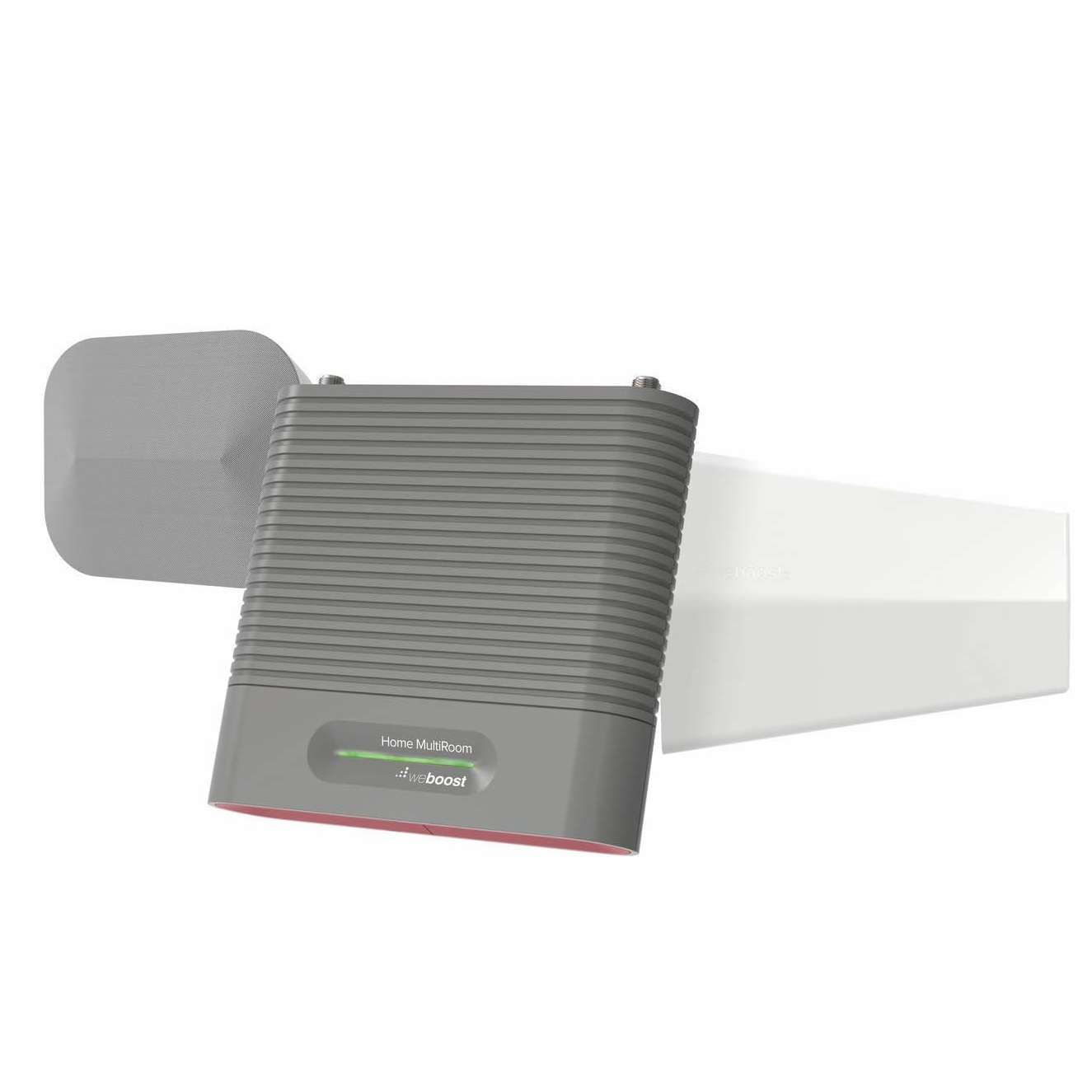
When reliability is paramount, you'll get power powerful gain and wide support for all the different cell frequencies with the WeBoost Home MultiRoom. It'll satisfy most case needs.
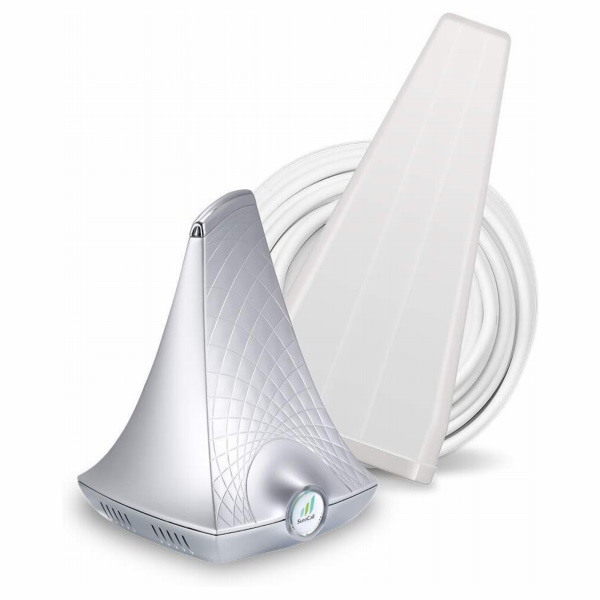
Most whole home cell phone boosters can often exceed $500 in price, but the SureCall Flare 3.0 is priced much lower and offers good coverage when you need it.
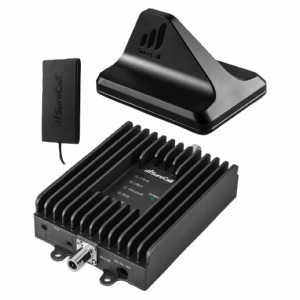
When you're constantly on the move, the SureCall Fusion2Go Max is reliable enough for proper handoff from one cell tower to another.
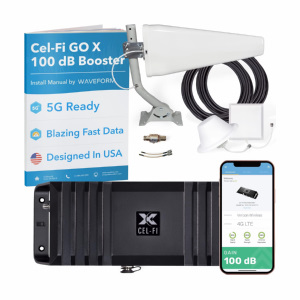
If coverage is what you're after, the Cel-fi GO X has you covered with its up to 15,000 sq ft of coverage, which makes it perfect for large home or small offices or if you're in a rural area.
The best cell phone signal booster you can buy
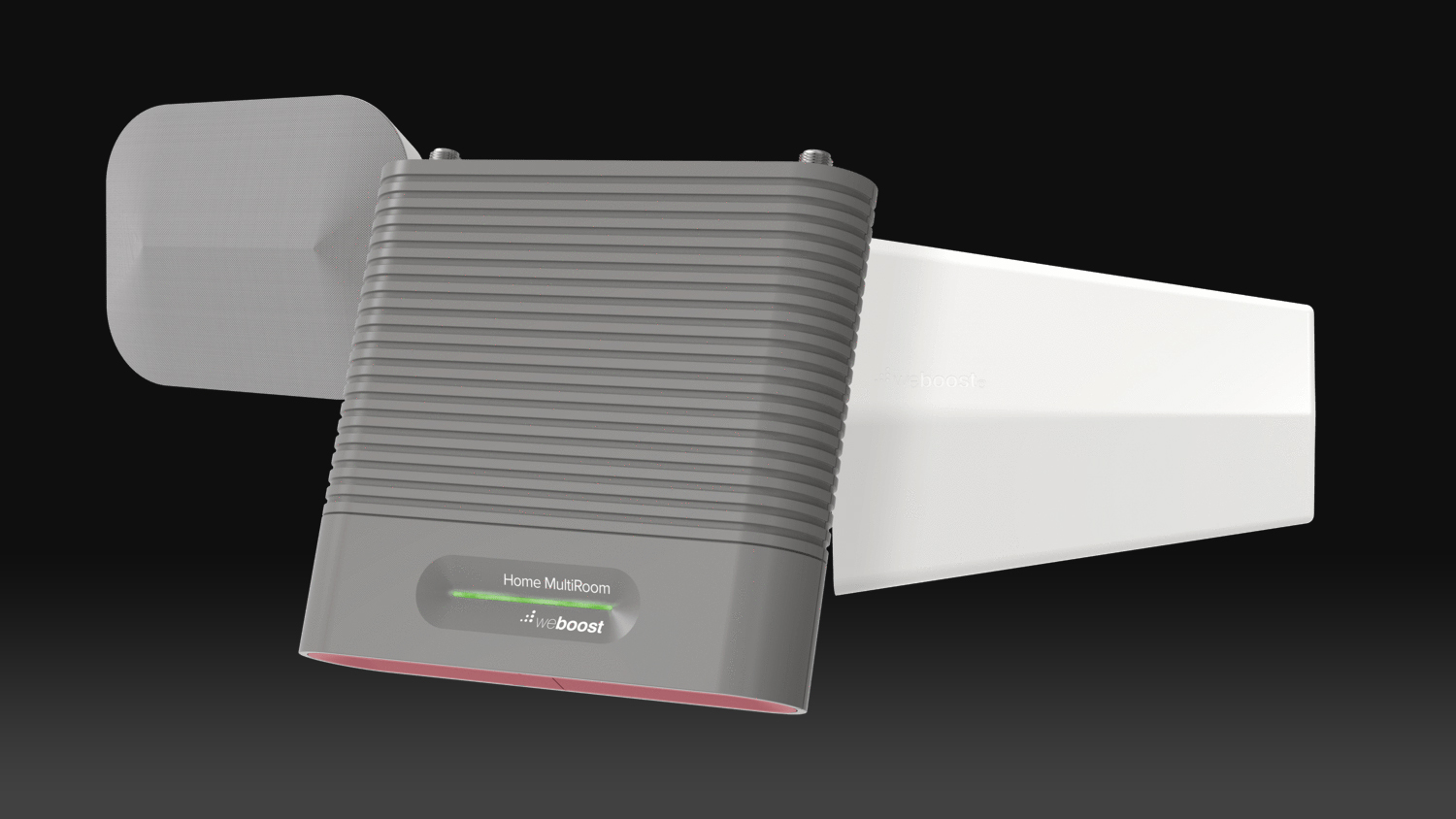
1. WeBoost Home MultiRoom
Specifications
Reasons to buy
Reasons to avoid
If you need a signal booster in the first place, you're probably not looking for a slightly better connection — you need serious improvement, and not only in one room in your home. If that's the case, the WeBoost Home MultiRoom is a good fit.
WeBoost's directional antenna design may make it a little more challenging to setup than a booster of the omnidirectional variety, but the tradeoff is an efficient, powerful signal with up to 65 dB in gain.
Like all WeBoost's offerings, the Home MultiRoom package is designed to pull in bands from all networks — Verizon, T-Mobile, AT&T and even US Cellular — on any carrier, whether you're subscribed to one of those aforementioned providers or a virtual operator like Metro or StraightTalk that piggybacks off one of the major carrier's towers.
That's great news if you see yourself changing carriers, or expect to get many years of use from the Home MultiRoom — which you probably are, because, at $550, it's far from the cheapest option.
Best budget
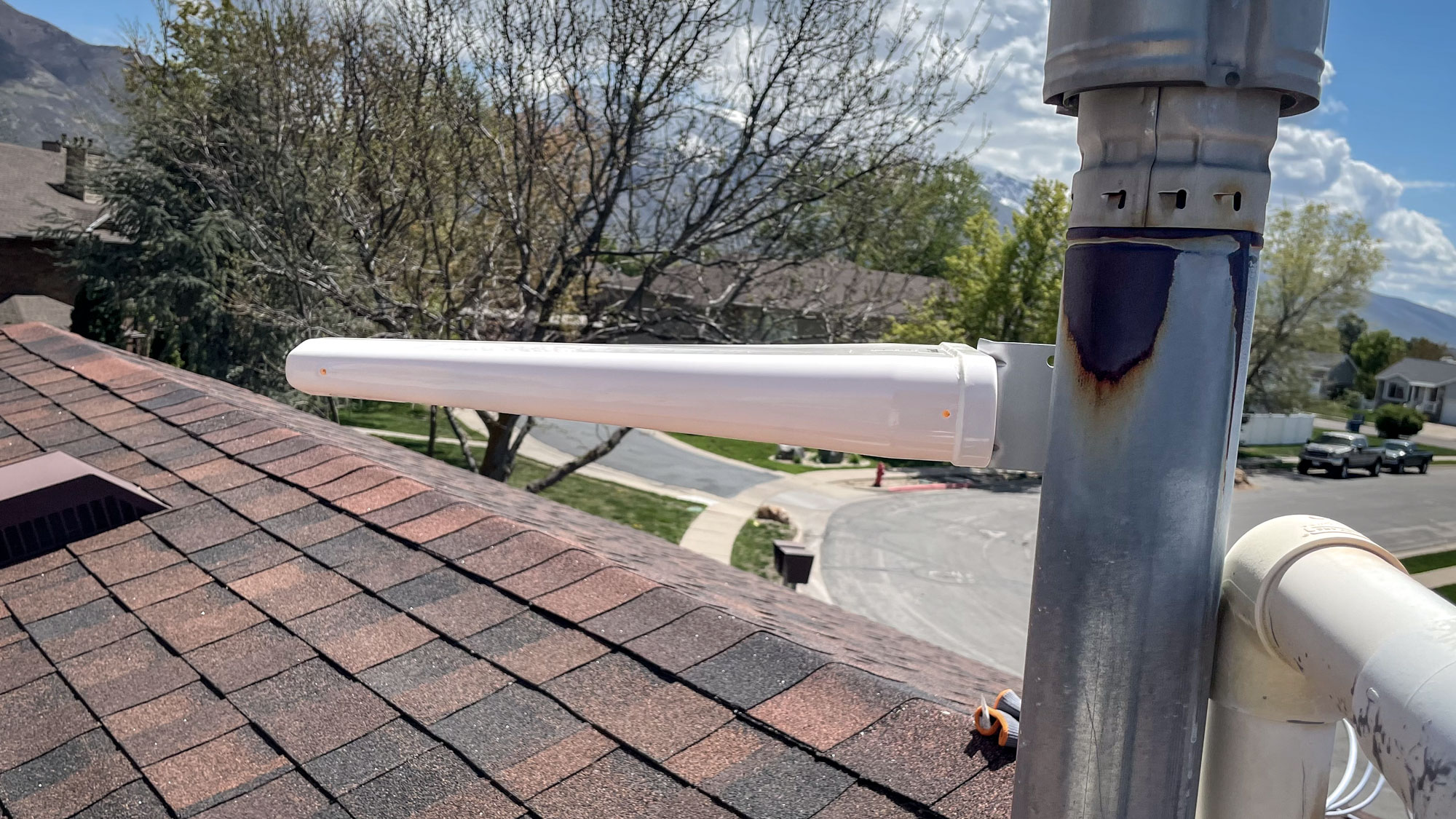
2. SureCall Flare 3.0
Specifications
Reasons to buy
Reasons to avoid
SureCall's Flare 3.0 directional offering best works when it's focused at one tower in particular to improve your connection at home. It does require some lengthy setup and installation, which involves putting the outdoor antenna higher up to get the best signal. And while there's a lot of wiring to get through, the whole process is actually easier than it seems.
The biggest benefit of the SureCall Flare 3.0 is that you won't spend as much on improving your connectivity, as it's one of the more budget options around. We've even tested out this exact model with instant results as our 5G performance signal went from fair to good in a matter of moments.
Read our full review: SureCall Flare 3.0
Best for the car

3. SureCall Fusion2Go Max
Specifications
Reasons to buy
Reasons to avoid
If you find your signal is weaker than you'd like while driving, SureCall's Fusion2Go Max is the cell phone signal booster for you. This multi-carrier solution offers up to 50 dB gain and can blanket a vehicle of any size with increased service, which is sure to come in handy on those long road trips.
SureCall's Extended Range Technology is designed to mitigate signal loss by boosting the signal twice: once at the antenna, and then again inside the vehicle, to ensure service is as strong as possible. At $499, the Fusion2Go Max is surely an expensive add-on for your vehicle, though depending on where you live or perhaps your line of work, it could be extremely handy.
Best for small offices

4. Cel-fi GO X
Specifications
Reasons to buy
Reasons to avoid
The Cel-Fi GO X is one of the most powerful signal boosters on this list. It packs a whopping 100 dB max, equaling serious gains in cell phone reception in your home or office. It can also cover up to approximately 15,000 square feet (with optimal conditions), making it perfect for big homes or small offices. It's also the best cell phone signal booster for rural areas.
How the GO X achieves its 100 dB power is by focusing on a single carrier. You choose which one you need for your home or office, but you can switch them on the fly if you change carriers. You can also add additional antennae for extra coverage.
The GO X also comes with protection against shock damage. It's not a cheap option by any means, pushing the $1,000 mark. But if you need maximum power, this is it.
Best for apartments

5. SureCall EZ 4G
Specifications
Reasons to buy
Reasons to avoid
For those stuck in an apartment or other rental, the SureCall EZ 4G is probably your best bet. It doesn't require an external antenna installation, instead mounting to one of your windows.
Because of this, you shouldn't expect the same performance as some of the other entries on this list, but SureCall says you can expect up to 72 dB and coverage up to 2,000 square feet. If you just need a little boost in your rental home, this might be the option for you.
The EZ 4G is also quite affordable as far as cell phone signal boosters go, hovering at about $300 or so. Considering its low overhead when it comes to installation, you can easily move it between homes or small offices.
Also Consider
If you need more options, then also consider the cell phone boosters below that have been recommended by users. They might fit your exact needs better than the other options above, or could be alternatives if the other recommendations haven't worked out.
A hassle-free setup makes the SureCall Fusion4Home cell phone signal booster an easy way to quickly improve the coverage in your home.
For faster speeds, the 5G support and dedicated cradle for your cell phone makes the WeBoost Drive Sleek another good option for road warriors that are constantly going.
Who needs a cell phone signal booster?
Several years ago, if you had bad signal in your home, you were out of luck unless you sprung for a signal booster. Nowadays, though, most phones and carriers support Wi-Fi calling. This uses your home network to handle calls and texts (and obviously data). Granted, there are some exceptions, but most of the best phones work on the major carriers' Wi-Fi calling networks.
There are also several VOIP services you could use at home, like Google Voice, which lets you accept and receive phone calls through your computer. Some of them, like TextNow, offer a free unlimited talk and text plan if you're on the road and not connected to Wi-Fi. Furthermore, if you're simply in a remote location and can't acquire a cell connection, some phones are now employing emergency SOS satellite connections that let you text message emergency services.
So those who need a dedicated cell phone signal booster might find themselves in the minority, but you already know if you need one or not.
How to choose the best cell phone signal booster for you
Before you even start shopping for signal boosters, take stock of the network you use for cell phone service, and the bands your phone operates on. While all of the products in this list work on all networks across every carrier, some lack that universal support, and you definitely don't want to end up with a signal booster that boosts the wrong signal. Also keep in mind you will have to register whatever you buy with your carrier — both because it won't work otherwise, and because it's a legal requirement.
Then, it's important to assess what exactly you need from a signal booster. If you find yourself always struggling to connect at all, prioritize finding an option that utilizes a directional antenna, as these are more focused and can deliver stronger, more efficient and consistent connections. If your situation is less dire, an omnidirectional option should do fine.
Of course, you also have to consider the space you need to fill. Unsurprisingly, signal boosters that can blanket a whole home in signal will cost more — potentially hundreds of dollars more — than those that are designed to outfit smaller spaces with service.
It also must be said that a vast number of signal boosters on the market today aren't built to improve 5G service; if you see a booster listed as "5G phone compatible," it likely means it will enhance LTE signals that a phone capable of 5G can receive, not actually that it's enhancing 5G data specifically. You'll have to wait a little while if you want something geared for next-generation networks.
Finally, if you are committed to your cellular provider of choice and don't plan to switch in the foreseeable future, why not entertain one of your network's first-party extenders or signal boosters? Verizon, T-Mobile, and AT&T all offer products designed for exactly that purpose, and because they're uniquely attuned into your particular network's infrastructure, they might work even better than some of the options on this list.
How we picked the best cell phone signal boosters
In addition to some actual hands-on testing with some models, we also select the best cell phone boosters based on third-party tests, manufacturer specifications, and recommendations from people we know who have used them to create this list.
Get instant access to breaking news, the hottest reviews, great deals and helpful tips.

John’s a senior editor covering phones for Tom’s Guide. He’s no stranger in this area having covered mobile phones and gadgets since 2008 when he started his career. On top of his editor duties, he’s a seasoned videographer being in front and behind the camera producing YouTube videos. Previously, he held editor roles with PhoneArena, Android Authority, Digital Trends, and SPY. Outside of tech, he enjoys producing mini documentaries and fun social clips for small businesses, enjoying the beach life at the Jersey Shore, and recently becoming a first time homeowner.
- Adam Ismail
- Jordan PalmerPhones Editor
 Club Benefits
Club Benefits










